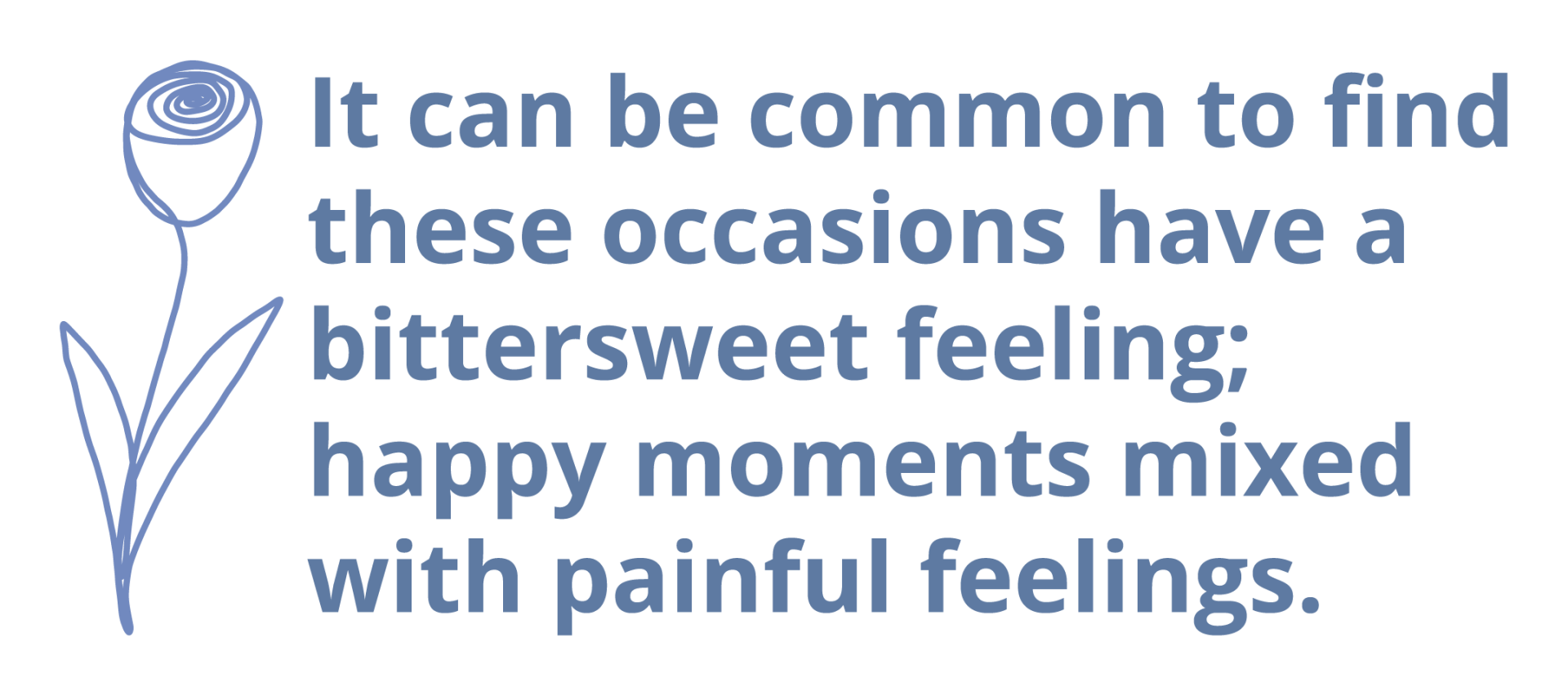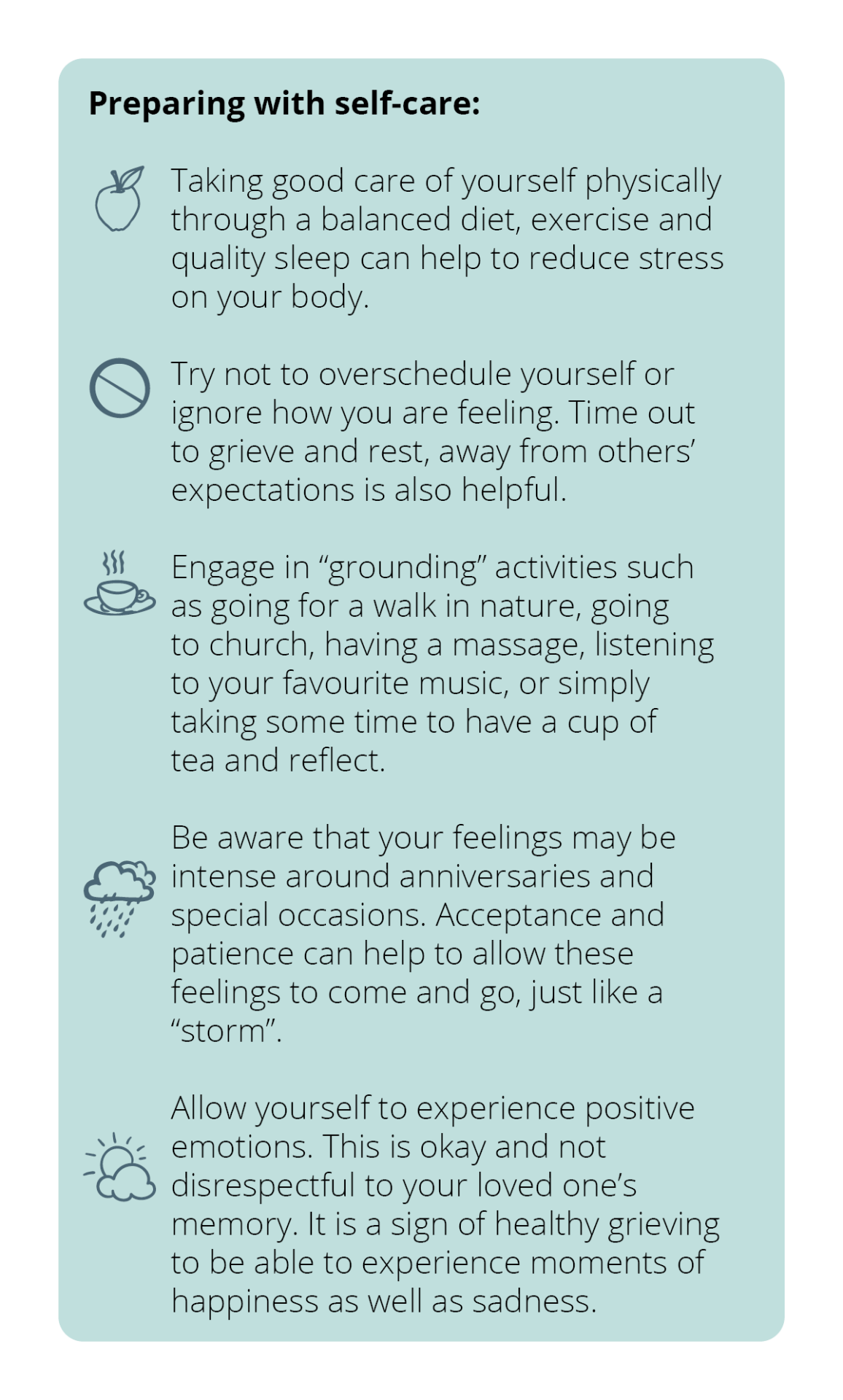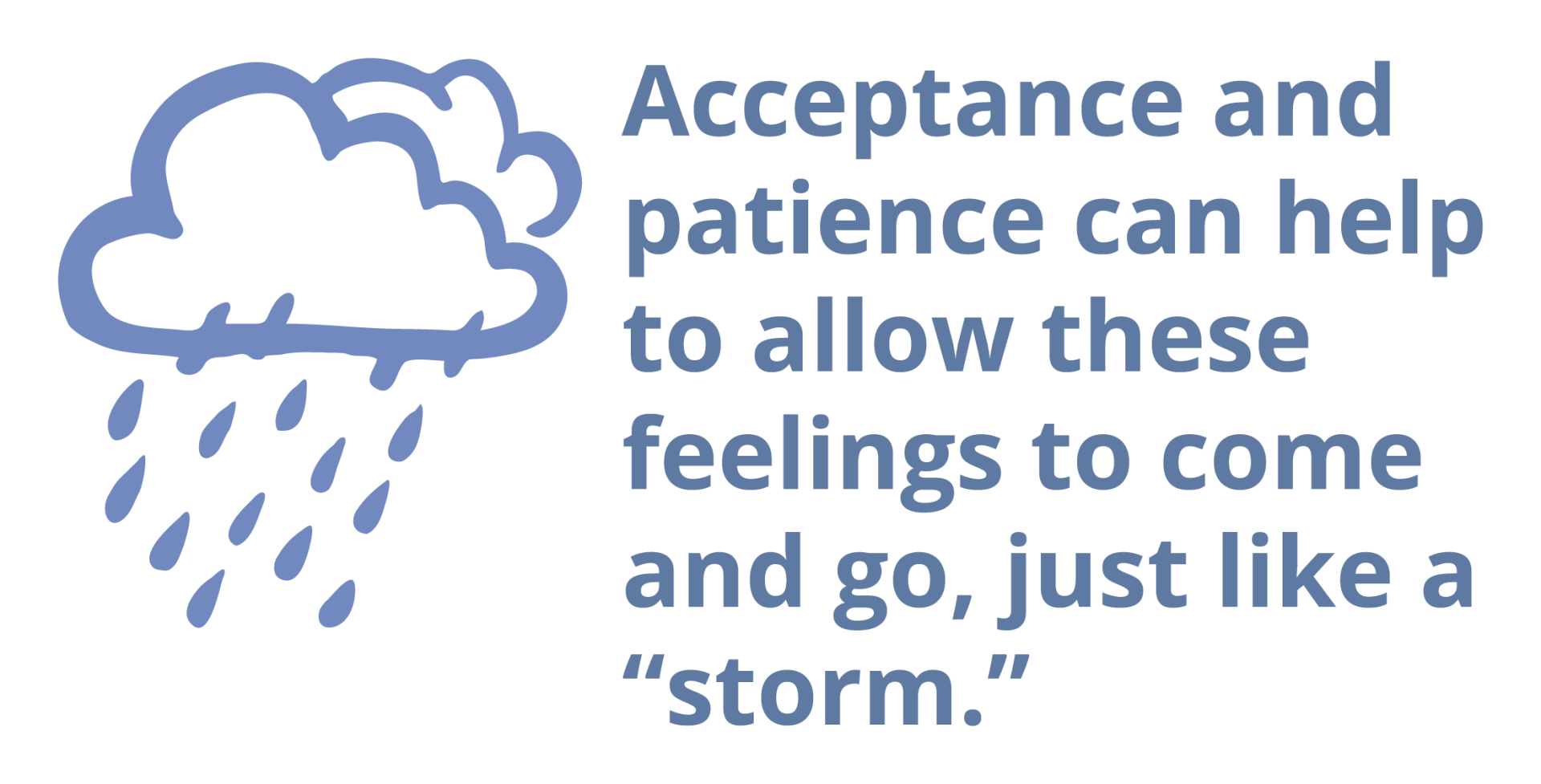Many significant events, anniversaries and special occasions can stir up more grief when you have lost a loved one. These can be previously happy occasions like Christmas, New Year, birthdays, and anniversaries. They also include sad occasions such as the anniversary of the death or funeral.

Plan for the event
The lead-up to an anniversary or event can often feel worse than the actual day itself. Stress, anxiety and ambivalence are very common. A way to reduce some of the stress is to consider the following and make some decisions before the day:
- Make a list of upcoming events or milestones that could be difficult for you.
- Identify what you may need to support you during this time.
- What do you want to do and who do you want to do this with?
- Who else might you need to consider e.g. children?
- Reach out to the person(s) you would like to be around during this time and ask if they can be there to support you.
- Practice some responses to difficult questions.
- Take the time to talk over your feelings about the upcoming event with someone you trust or a grief counsellor.
Self-care

Let others know how you are feeling
Once you’ve decided what you will do on the day, discuss it with family and friends. Being honest that it’s a difficult time for you, and letting them know what you need, can be helpful for everyone involved.
Also, know you’re allowed to ‘change your mind’ on the day. Even the best of plans can be cancelled. It can be helpful to “expect the best, but plan for the worst”. That means having a strategy or plan if things don’t go well.
Some people in your life may not understand your needs at these times. Friends and family may forget to acknowledge a significant day such as a death anniversary. You may find it difficult to be around people who don’t understand or accept your feelings. The best you can do is communicate your needs and expectations and do what is best for yourself and your immediate family.
Try to focus on the things that you can be grateful for, or that bring you comfort, rather than the negative things you can’t change or control.

Things you can do on the day
- You have permission to not be okay on the day. Allow yourself to be sad, without having to pretend otherwise. Remind yourself that feelings come and go in waves, and this too shall pass.
- Take opportunities to remember and talk about your loved one. Even small sentiments like, “Dad always loved this song…”
- Hold a personal ceremony or ritual for your loved one. For example, light a candle, plant a tree, flower, or find a quiet place for reflection.
- Meditate, have a conversation out loud with your loved one, read them a passage or poem, or offer up a prayer.
- Use creativity to express how you feel. This might be through music, dance, painting, creative writing, or any other activities which engage you creatively.
- Do something active in your loved one’s name. Volunteer your time, donate money, or organise a fundraising event to go to a cause or charity organisation that your loved one values.
- Consider doing nothing special today if that is what you need.
Establish a new ‘normal’
For many of us, birthdays and Christmas means celebrating with traditions and rituals. You might find comfort in doing things the same way they have always been done, but don’t be afraid to alter things if you need to.
If events like Christmas are too overwhelming, you might choose to ‘cancel’ them for the first year, plan a trip away, or decide to do something completely different such as volunteer at a charity event.
If you have young children to consider, it may be better to try to continue with the traditions that they enjoy and look forward to.
Grieving children need opportunities to have good “normal” fun. Try to find some balance between the needs of the children, who may become quite absorbed in the joy of the occasion, with your own needs for some quiet time, reflection or expressing sadness.



